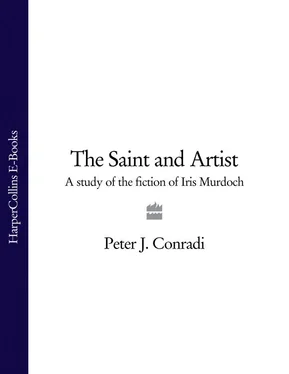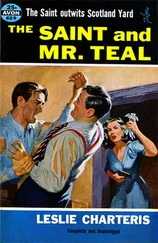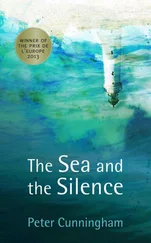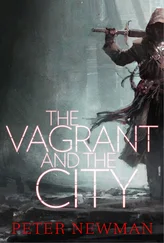1 ...7 8 9 11 12 13 ...23 Iris Murdoch noted that Plato was one of the first to define the good man as opposed to the hero ( FS 74). Under the Net has two heroes, not one. Jake, who is recognisably the typical jaunty anti-hero of his time, is systematically undercut by Hugo, who is presented as a truer and less visible kind of anti-hero.
Murdoch opposes to the man ‘trying to impose or assert or find himself’ (the existentialist hero) an alternative picture of ‘the anxious man trying to discipline or purge or diminish himself (the mystical hero)’ (em). In Hugo’s questioning of Jake’s picture of events, Under the Net partly mocks the voluntarist pieties of the age.
Jake tells us that his acquaintance with Hugo is ‘the central theme of the book’ (UN 53). At the heart of the great richness of comic incident the book affords is Jake’s fascination with Hugo and the misunderstandings and relative differences between them. Jake’s relation with Hugo shapes the book and helps fund its tone. Without Hugo’s presence Jake has slipped into a variety of illusions. Yet just as Jake is in Anna’s presence for only five minutes during the book, so he is in Hugo’s for only a few moments of ‘present’ time at the film studio, and then for half an hour at the hospital. This half-hour constitutes the book’s comic reversal and Jake’s sad, partial recognition of the truth.
We first see Hugo in the mime theatre where a ‘huge and burly central figure, wearing a mask which expressed a sort of humble yearning stupidity, was being mocked by the other players’ (36). The irony of the mask that Hugo wears here is that it expresses his real nature. He is the only character apart from Finn shown incapable of untruth or dissimulation. Thus towards the end Hugo speaks of Sadie to Jake with an air which Jake characterises as ‘disgustingly humble’ (225). In The Sovereignty of Good Murdoch praised humility as ‘a rare virtue and an unfashionable one and one which is often hard to discern…The humble man, because he sees himself as nothing, can see other things as they are. He sees the pointlessness of virtue, and its unique value, and the endless extent of its demand’ (103–4).
Jake and Hugo meet in a cold-cure centre where Jake takes Hugo for a mental defective and ignores him for two days, despite the fact that they are sharing a room. Hugo puts up with this snubbing with gentle patience and self-possession. When Jake engages him in conversation he realises he is closeted with a person of great fascination – indeed ‘the most purely objective and detached person’ (57) Jake has ever met. Jake notes that the conversation which ensues is germane to the whole story he has to tell. For Hugo
Each thing was absolutely unique. I had the feeling that I was meeting for the first time an almost completely truthful man; and the experience was turning out to be appropriately upsetting. I was but the more inclined to attribute a spiritual worth to Hugo in proportion as it would never have crossed his mind to think of himself in such a light. (61)
Given the care that Murdoch has put into picturing Hugo as a man aspiring to be good, connecting this quite explicitly to his scepticism about the act of classification, there is an irony in the way critics have positively rushed to classify him. Jake notes that to try to ‘place’ Hugo, as he at first attempted, was a failure of taste which showed a ‘peculiar insensitivity to his unique intellectual and moral quality’ (58). One critic links Hugo with pataphysics, another tells us he is an existentialist. Others have linked him with Wittgenstein, 8 with whom he certainly shares a quality of ‘unnerving directness’ (Mehta, 1961) in his approach to persons and problems. Like Wittgenstein Hugo is a wealthy Central European attracted to an ascetic ideal, sexually tormented, with a curious care for his boots, and a man who worked in his family factory, and had a capacity to renounce. But Hugo’s forebears are as much literary as philosophical. In particular he seems to owe something to Dostoevsky’s Prince Myshkin in The Idiot, another holy fool, half clown, half spiritual emperor, comic-pathetic and wise. The ‘sparse simplicity’ of Hugo’s bedroom (92), moreover, resembles not merely that of Wittgenstein but the simplified rooms of the other saintly figures in Murdoch’s novels, who are extremely unlike the Austrian philosopher. It is to Hugo’s renunciatory capacities, as much as his intellectual lineage, that Murdoch is drawing our attention. It has been well observed that her novels contain only fools and holy fools. 9 Jake is the common fool, Hugo the holy fool.
It is important to our sense of Hugo before we have met him that his flat, despite being so full of art-treasure (Renoirs, Miro, a Minton) should be left not merely unlocked but with the door ajar. His wholly austere and unornamented bedroom suggests that he is inwardly neither covetous nor attached. He has given up the armaments factory he inherited before the action commences and converted it to fireworks, and then, when these are acclaimed and pretentiously classified, lost interest in them too. At the end of the story he is giving up some remaining attachments: his passion for Sadie, whom he has persecuted, his film industry, his money, his friendship with Jake, London itself, and the role which he conceives of as false of consoling Anna. This is a different mode of detachment from Jake’s, though both are ‘outsider’ figures, Jake an Irish expatriate, Hugo the child of German refugees. Jake spends much time wondering where he will sleep during the tale and in fact passes one night, like a tramp, on a bench on Victoria Embankment. What distinguishes these modes of detachment has everything to do with the specially enlarged sense Murdoch gives to the word ‘artist’.
Jake’s separateness makes him extraordinary to himself; Hugo is nobly unself-conscious. If Hugo resembles anyone in the story it is the shadowy but truthful Finn who, like him, cannot imagine himself at the ‘centre’ of any story, or the dog Mars whom Jake has stolen. Hugo’s exit from the hospital and almost from the book is conducted on all fours, with his bottom in the air, dribbling into the boots he holds in his teeth. This noble unself-consciousness gives him, as the would-be good man who sees objectively, an alarming ordinariness, and an odd, dogged, animal intelligence.
Jake early notes that Hugo is devoid of general theories. All his theories, if they can be called theories – for they read as exercises in patient inquisitive particular enquiry – are local. An early conversation dramatises the difference between them and concerns the problem of describing states of mind or feelings. That such description belongs to the novel as a form, as much as to moral philosophy, is important.
’there’s something fishy about describing people’s feelings,’ said Hugo. ‘All these descriptions are so dramatic.’
‘What’s wrong with that?’ I said.
‘Only,’ said Hugo, ‘that it means that things are falsified from the start. If I say afterwards that I felt such and such, say that I felt “apprehensive” – well, this just isn’t true.’
‘What do you mean?’ I asked.
‘I didn’t feel this,’ said Hugo. ‘I didn’t feel anything of that kind at the time at all. This is just something I say afterwards…As soon as I start to describe, I’m done for. Try describing anything, our conversation for instance, and see how absolutely instinctively you…’
’touch it up?’
‘It’s deeper than that,’ said Hugo. ‘The language just won’t let you present it as it really was.’ (59)
’the whole language is a machine for making falsehoods’ (60), Hugo adds. Jake finds Hugo’s puritan suspicion of language not desiccating but life-giving because it is in the service of a love of truth and a love of the real. ‘For Hugo each thing was astonishing, delightful, complicated, and mysterious. During these conversations I began to see the whole world anew’ (58). For Hugo as for Plato art is a special case of copying, and he shares Plato’s typically puritan suspicion of mimetic art. When Hugo creates his fireworks he ‘despised the vulgarity of representational pieces’ and preferred that his creations be compared, if to anything, then to music. Moreover he finds the impermanence of fireworks a positive recommendation.
Читать дальше












